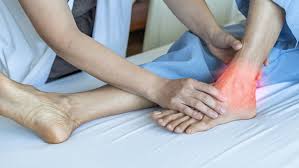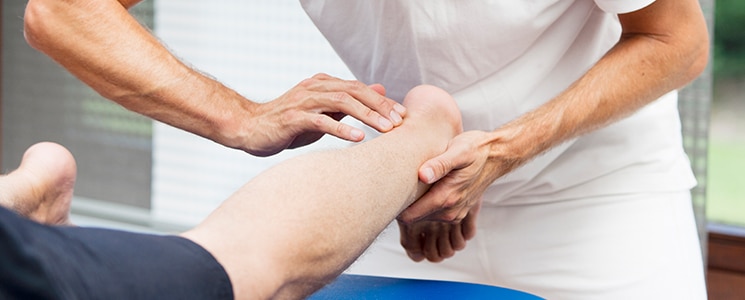
Are you experiencing Achilles tendon pain? Generally, it is common among runners and other sports players such as basketball, football, or tennis. It is recommended to contact your doctor for an evaluation as soon as possible.
Your doctor may advise you to go for Achilles tendon pain physical therapy in Philadelphia. But what exactly causes it? Read on to know all about the causes of Achilles tendon pain and how to deal with it.
What is Achilles tendon?
The Achilles tendon comprises strong fibers bundled together. It essentially connects your heel bone and calf muscles towards your ankle’s back. By providing proper support to your ankle and calf, the Achilles tendon ensures smooth movements.
Tendons are strong, but they are not flexible. Even the Achilles tendon, which is the largest tendon in your body, is not an exception. It can stretch in limits only. Since it helps in jumping, running, and walking, this tendon is susceptible to tears.
Any injury to your Achilles tendon may be very uncomfortable. It restricts your movement. The pain may be light or severe, especially when you bend your foot downwards. If you face these pains, you can perform some ankle physical therapy exercises in Philadelphia.
Causes of Achilles tendon
While it is common among athletes, non-athletic individuals can also experience Achilles tendon pain. The following are the two primary causes of this pain:
- Rupture or Tear
The most common cause is a tear in the tendon’s fibers. The tear may be partial, and some fibers may still be intact. Alternatively, the injury can be a total tear, and the Achilles tendon ruptures. All its fibers disconnect in such instances.
Generally, the activity that causes a rupture or tears in the Achilles tendon is excessive exercising. Repetitive stress upon your feet and ankle can also cause ruptures and tears in the tendon. Sportspersons who need rapid changes in direction or pace tend to suffer Achilles tendon pain the most.
Additionally, it occurs when you start practicing for a new game or sport. Returning to your activity after too long can also cause Achilles tendon pain. It is because of the sudden spike in your exercise and practice intensity.
Symptoms of a rupture or tear in your Achilles tendon include:
- Pain in your heel or behind your leg
- A snapping or popping sound when injured
- Worsening pain during foot or ankle movement
- Swollen heel
- Difficulty in movement
- Stiff heel or legs
- Achilles tendinitis
When your Achilles tendon suffers inflammation, the condition is called Achilles tendinitis. It comes in two types:
- Noninsertional: The fibers at the center of your Achilles tendon suffer inflammation. The condition is frequent among younger people.
- Insertional: The inflammation occurs in the fibers at the lower Achilles tendon. It is common among runners and other athletes who undergo intense training.

Achilles tendinitis occurs when you overuse your Achilles tendon instead of any specific injury. Moreover, it develops gradually with time. You may not immediately notice it unless the pain increases. Your doctor may recommend some ankle physical therapy exercises in Philadelphia to relieve your pain.
Symptoms
Symptoms of Achilles tendinitis include:
- Stiff legs and ankles
- Shooting pain in the ankles
- Painful ankle or foot movements
- Swelling on the backside of the ankle
- Bone spurs (bony growth around the heel)
How to Handle Achilles tendon Pain!
Are your symptoms mild? Then your Achilles tendon usually heals itself with adequate rest. However, it is recommended to contact a doctor. Severe injuries or pain need proper treatment for you to return to your normal activities. Moreover, if you hear a snapping sound when injured, seek medical treatment immediately.
Treatment for Achilles tendon pain depends on your injury and its severity. Mild injuries can heal with rest, an ice pack, or cold compressions. At times, you may require painkillers.
Additionally, your doctor may advise you to go for Achilles tendon pain physical therapy in Philadelphia. Physical therapy helps in reducing the pressure on your Achilles tendon and strengthens your calf muscles.
If your symptoms worsen or show no improvement, surgery may be necessary. However, in most cases, the symptoms disappear within 3 to 6 months.
Achilles tendon pain may range from mild to severe. Now that you know the causes for it, try to avoid them and look for alternatives. You can consult a doctor if you experience any of the symptoms. For effective treatment, you can try physical therapy exercises.





